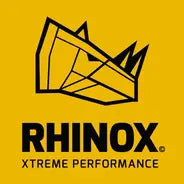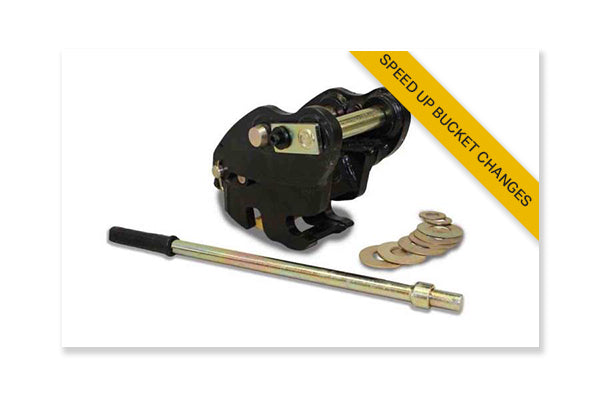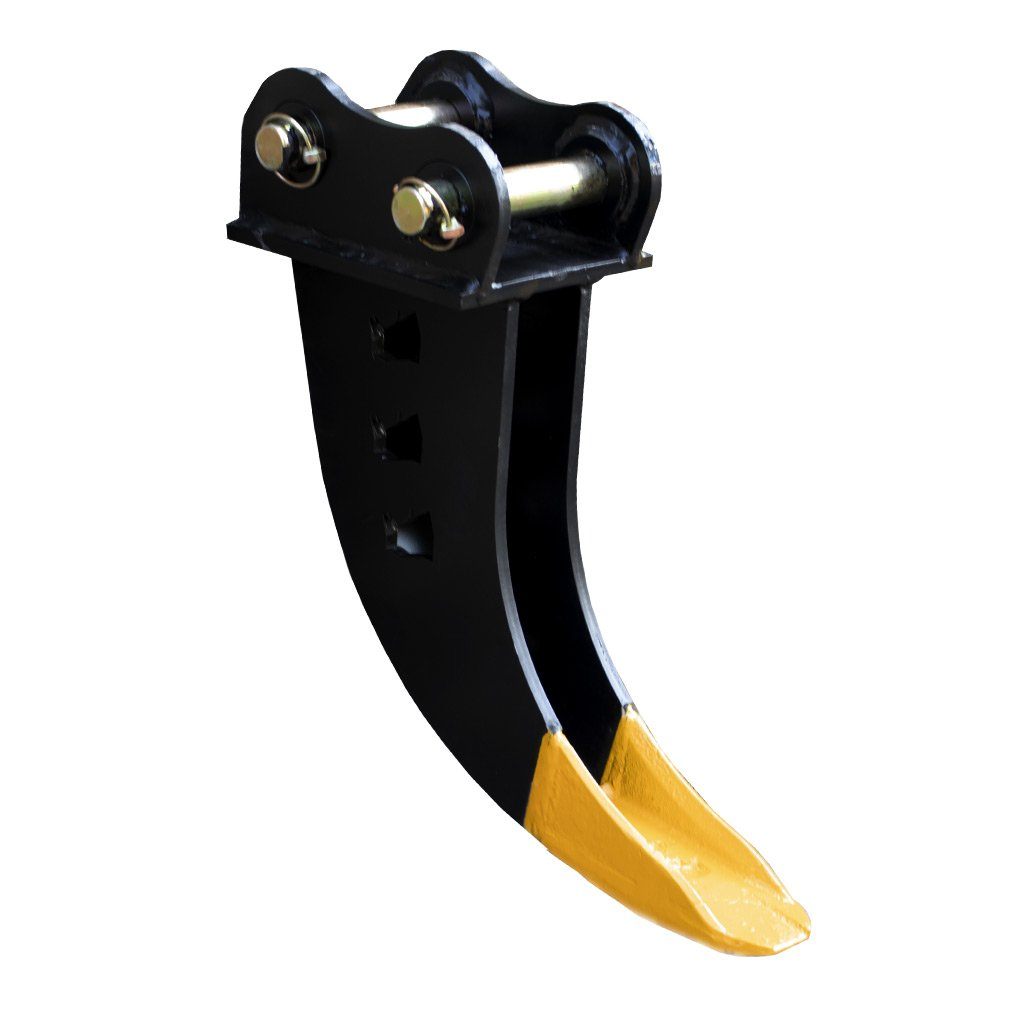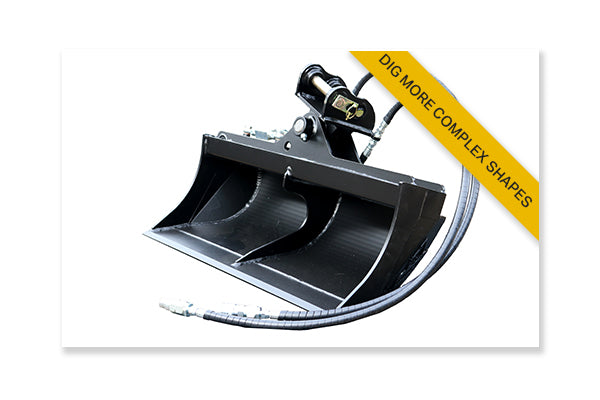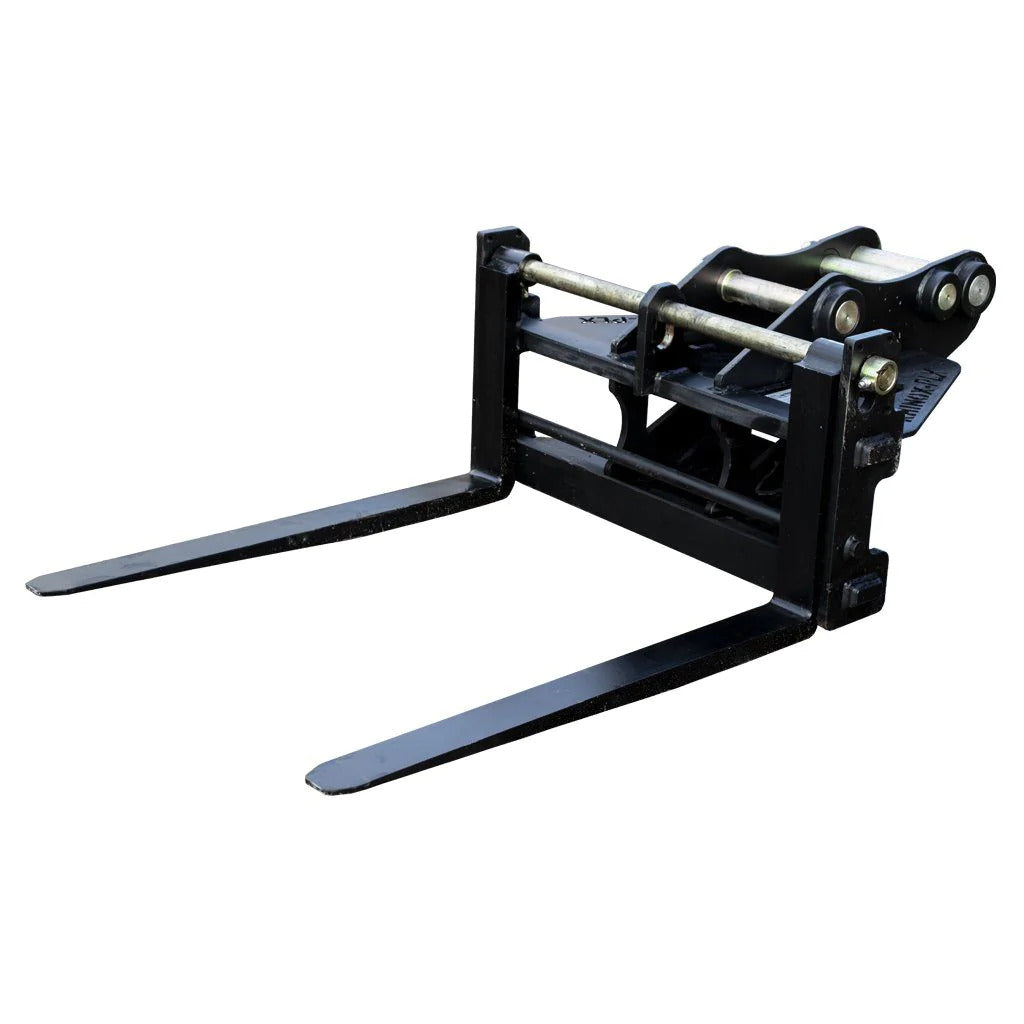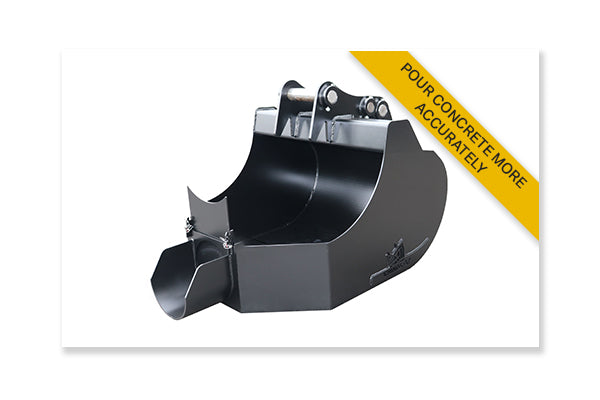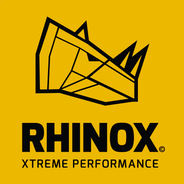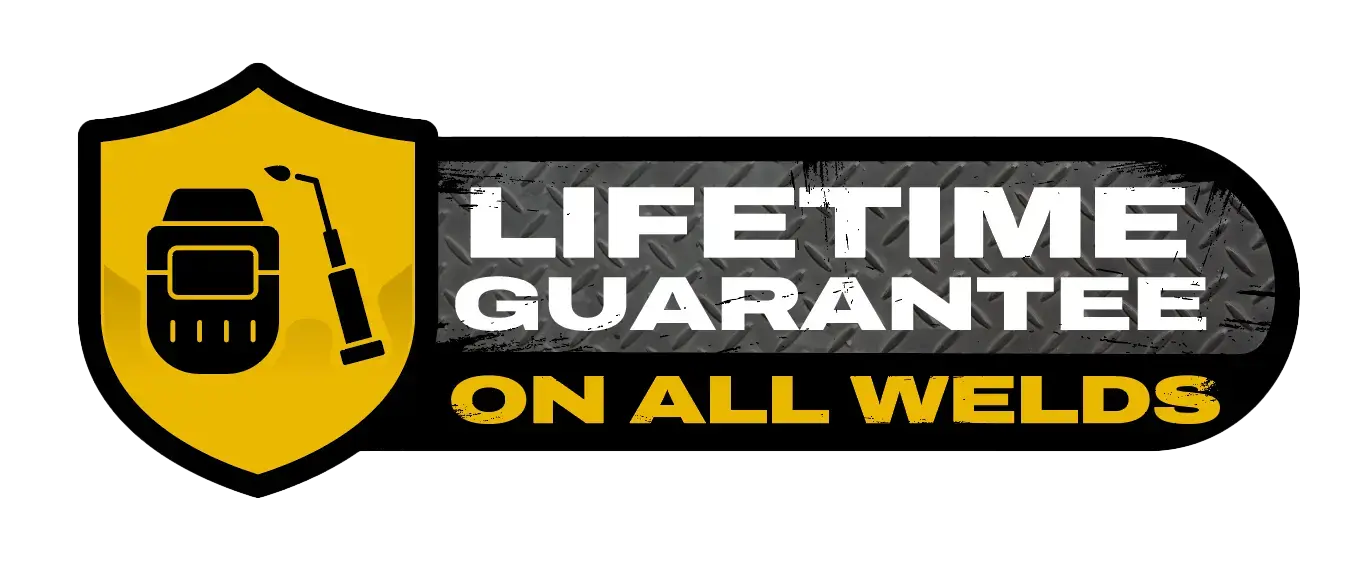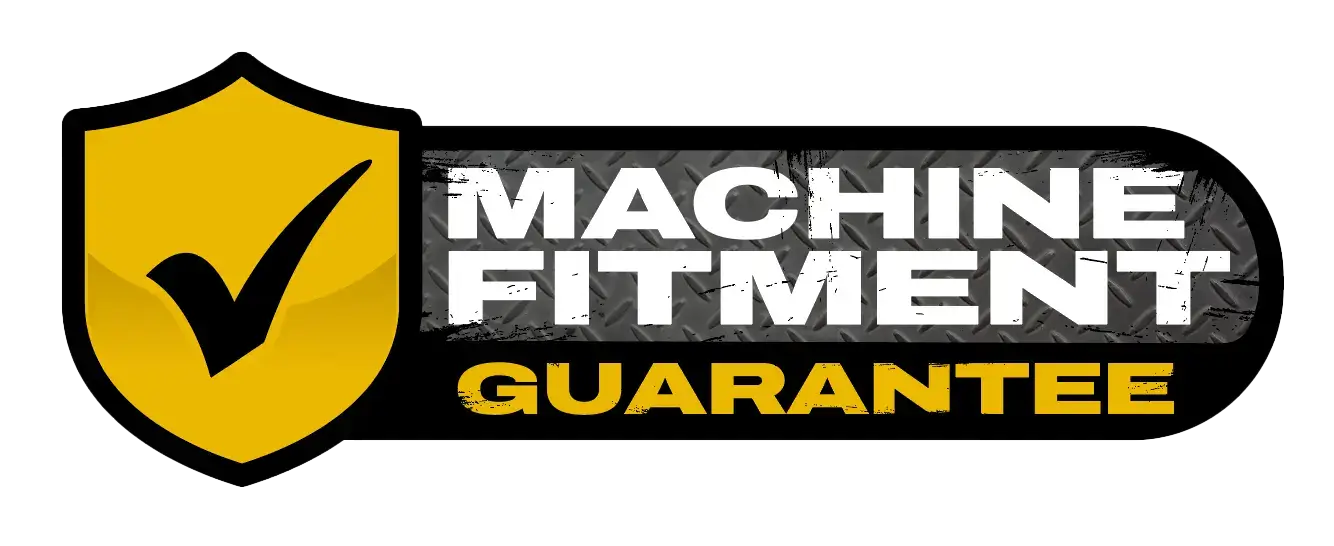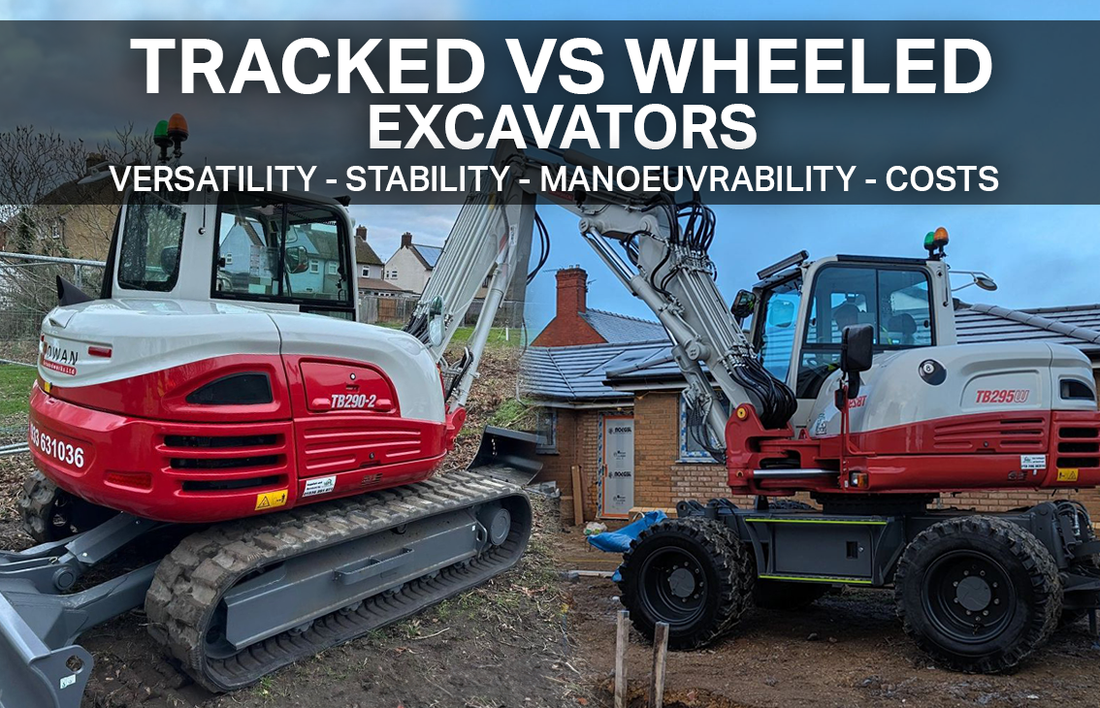
Tracked VS Wheeled Excavators
Excavators stand as the workhorses of modern construction and excavation projects, with their versatile capabilities and sheer power. When it comes to choosing between tracked and wheeled excavators, it's not just a matter of preference; each type brings its own set of advantages and limitations. Join us as we delve into the debate of excavators with tracks versus wheels, weighing up the stability, versatility, maintenance needs and size ranges available.
Tracked Excavator |
Wheeled Excavator |
 |
 |
5 Things to Consider When Choosing Between a Tracked and Wheeled Excavator
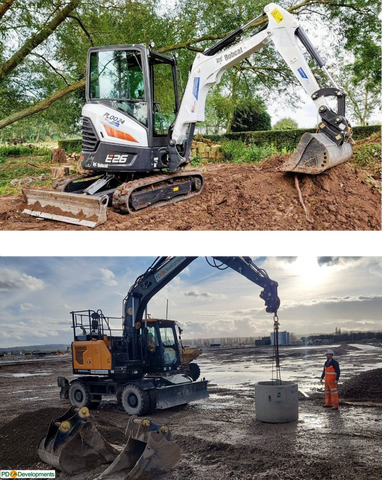
1. Terrain & Stability
Tracked and wheeled excavators are best suited to different types of terrain. Tracked excavators have a lower centre of gravity and larger surface area of ground contact compared to wheeled excavators, meaning they excel in navigating challenging landscapes, such as soft, muddy or uneven ground. This gives them superior stability on rough and steep surfaces, like ditches, quarries and boggy construction sites.
Wheeled excavators, or rubber duck excavators as they're also known, have a limited surface area of ground contact which can lead to traction and balance issues. They also have a higher centre of gravity due to the increased wheel height which hinders their stability. Wheeled excavators are road friendly, which means they are well-suited for smoother surfaces and urban environments, such as motorways and cities. The choice between tracks and wheels often depends on your job requirements and the terrain you're working on.

2. Versatility & Manoeuvrability
In terms of attachment versatility, tracked and wheeled excavators both offer compatibility with a variety of attachments, from buckets and rakes to grapples and augers. This flexibility allows for seamless transitions between tasks, whether it be excavation, ground preparation or debris removal. Manoeuvrability plays a crucial role in optimising efficiency and accessibility, particularly in confined spaces or congested areas.
Wheeled excavators typically exhibit greater manoeuvrability, with their ability to navigate tight turns and narrow passages swiftly, making them ideal for urban construction projects or roadside maintenance. On the other hand, tracked excavators, though slightly less manoeuvrable in certain situations, compensate with their superior stability, ensuring steady operation even on challenging terrain. Alongside this, the digging depth of a wheeled excavator is reduced in comparison to a tracked excavator, as the additional height of the wheels increases the height off the ground.

3. Speed & Transportation
When comparing excavator speed and transportation, wheeled excavators hold a notable advantage due to their road-friendly design and enhanced mobility. Wheeled excavators can travel up to 22mph, both on and off the job site, compared to around 5mph of a tracked excavator. The ability of rubber duck excavators to travel efficiently on roads enables operators to swiftly move between different work sites without the need for additional transportation equipment. This versatility not only saves time but also reduces logistical complexities, enhancing overall project efficiency.
In contrast, tracked excavators, while offering superior stability and traction in challenging terrains, generally require specialised transport vehicles for relocation. However, once on-site, tracked excavators excel in navigating rough terrain and maintaining stability during operation. Therefore, the choice between wheeled and tracked excavators often hinges on the specific project requirements, balancing the need for speed and transportation convenience with terrain adaptability and operational stability.

4. Upfront, Running & Maintenance Costs
When comparing upfront, running, and maintenance costs, it's important to note that wheeled excavators generally come with a higher upfront cost compared to tracked models. This higher initial investment is often attributed to the additional engineering required for the wheel and axle systems, as well as the enhanced mobility features. However, wheeled excavators can offer advantages in running costs, such as lower fuel consumption and reduced wear on undercarriage components, especially in applications that involve frequent relocation.
Maintenance costs for wheeled excavators may vary depending on factors such as the complexity of the wheel system and the manufacturer's design. Tracked excavators, while typically having a lower upfront cost, may incur higher running costs due to factors like fuel consumption and maintenance of the undercarriage components. However, they often require less frequent maintenance and offer durability advantages in rugged terrain, as their tracks are less prone to punctures from sharp rocks, screws and other debris commonly found on construction sites. This resilience reduces the risk of unexpected downtime and costly repairs, particularly in harsh working conditions.
5. Excavator Size
Tracked excavators typically come in a wider range of sizes compared to wheeled excavators, offering options as small as 0.75 ton micro excavators. Compared to wheeled excavators that are more commonly found in 7 tons and above. While both types provide versatility and functionality, the choice between tracked and wheeled excavators often depends on factors such as the specific requirements of the job, terrain conditions and the need for transportation flexibility.
Best Uses of Tracked VS Wheeled Excavators

Best Uses of a Tracked Excavator
- Construction Sites: Tracked excavators are commonly used in construction projects for tasks such as digging trenches, excavating foundations, demolishing structures and lifting heavy materials.
- Road and Infrastructure Development: They are valuable for road construction, highway maintenance and infrastructure development projects, including digging ditches, laying pipes and levelling terrain.
- Mining Operations: Tracked excavators are employed in mining operations for tasks like removing overburden, digging ore and constructing mine infrastructure due to their ability to handle rugged terrains.
- Landscaping and Earthmoving: In landscaping projects, tracked excavators are used for tasks such as shaping terrain, digging ponds and clearing land.
- Utility Work: Tracked excavators are utilised by utility companies for tasks like laying and repairing drainage systems and performing maintenance on electrical and telecommunications infrastructure.
- Forestry Operations: In forestry, tracked excavators can be equipped with specialised attachments for tasks like clearing land, delimbing trees and handling logs.

Best Uses of a Wheeled Excavator
- Urban Road Projects: Wheeled excavators are often preferred in urban areas and road projects where the terrain is relatively flat and the need to travel on roads and between job sites is high.
- Urban Utility Work: In environments with paved surfaces, wheeled excavators are more suitable for utility work such as repairing sewer lines, installing underground cables and other tasks where protecting the surface is required.
- Landscaping and Gardening: Wheeled excavators are often used in landscaping projects where manoeuvring on sensitive surfaces make them suitable for precision digging and grading are required.
- Light to Medium-duty Excavation: For smaller excavation projects, such as digging foundations, installing landscaping features or performing site preparation work, wheeled excavators can offer the necessary power and flexibility without the weight and complexity of larger tracked excavators.
- Port & Dock Operations: In port and dock environments, wheeled excavators are advantageous for tasks such as loading and unloading cargo, dredging and maintaining waterfront infrastructure due to their ability to move easily on solid surfaces.
Tracked VS Wheeled Excavator - Which is Best for You?
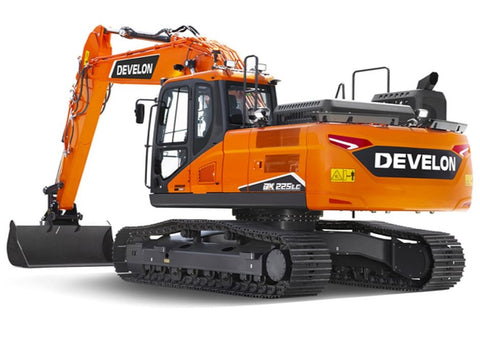
Choose a tracked excavator if you require:
- Better traction and higher stability on uneven surfaces.
- Increased digging depths.
- Cheaper upfront costs.

Choose a wheeled excavator if you require:
- A quicker excavator that can travel between sites.
- Better manoeuvrability and versatile across surfaces.
- Lower operating and maintenance costs.
In conclusion, the choice between tracked and wheeled excavators hinges on the specific requirements of your project, balancing factors such as terrain, mobility, cost and application. By carefully weighing the benefits and drawbacks of each option and considering maintenance needs and size range, you should now be able to confidently choose the right type of excavator for your projects.
Learn more with Rhinox:
 |
 |
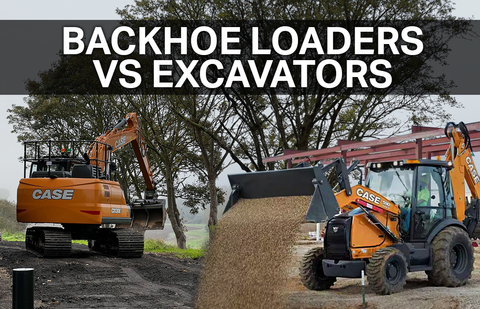 |
